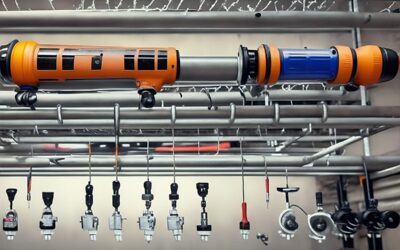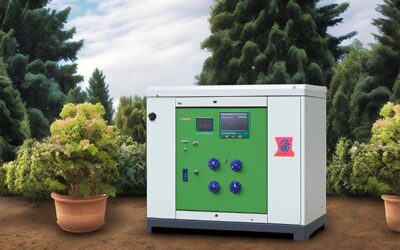Introduction
Screw compressors are powerful machines widely used in various industries for their ability to efficiently compress air and deliver a continuous flow of compressed air. With their innovative design and numerous advantages, screw compressors have become an indispensable component in countless applications. In this blog post, we will delve into the fundamentals of screw compressors, understand their working principles, and explore the reasons why they hold such importance in the world of compressed air systems.
What is a Screw Compressor?
A screw compressor is a type of positive displacement compressor that operates on the principle of two rotating screws meshing together to compress air. It belongs to the family of rotary compressors, which also includes vane compressors. The two main components of a screw compressor are the male and female rotors, also known as screws, that have precise helical shapes.
How Screw Compressors Work:
- Intake Stage:
The process begins when the rotating screws create a void at the intake side, drawing in atmospheric air. During this stage, the volume between the screws and the compressor housing gradually increases, causing the air to be pulled in. - Compression Stage:
As the screws continue to rotate, the trapped air becomes confined within the decreasing volume between the screws and the compressor housing. The helical shape of the screws helps in reducing the volume, thus increasing the pressure of the air. - Discharge Stage:
Once the air has reached the desired pressure, it is forced out through the discharge port into the compressed air system, where it can be further processed or utilized for various applications.
Advantages of Screw Compressors:
- High Efficiency:
Screw compressors are known for their excellent energy efficiency, making them ideal for continuous and demanding industrial applications. - Smooth Operation:
Due to their balanced design and direct power transmission, screw compressors produce less vibration and noise compared to other compressor types. - Continuous Air Supply:
Screw compressors offer a continuous flow of compressed air, ensuring a steady and reliable source of pressure for industrial processes. - Adaptability:
They can handle a wide range of capacity and pressure requirements, making them suitable for diverse applications in various industries. - Oil-Injected and Oil-Free Options:
Screw compressors come in both oil-injected and oil-free variants, offering flexibility based on the specific needs of an application.
Conclusion:
Screw compressors play a vital role in delivering compressed air for a multitude of applications, ranging from small workshops to large-scale industrial processes. Their innovative design, energy efficiency, and ability to provide a continuous air supply make them indispensable for various industries. Understanding how screw compressors work and their advantages can help businesses make informed decisions when selecting the most suitable compressor for their specific needs. In the following blog posts, we will delve deeper into different aspects of screw compressors, providing valuable insights and practical tips for optimal performance and maintenance.





0 Comments